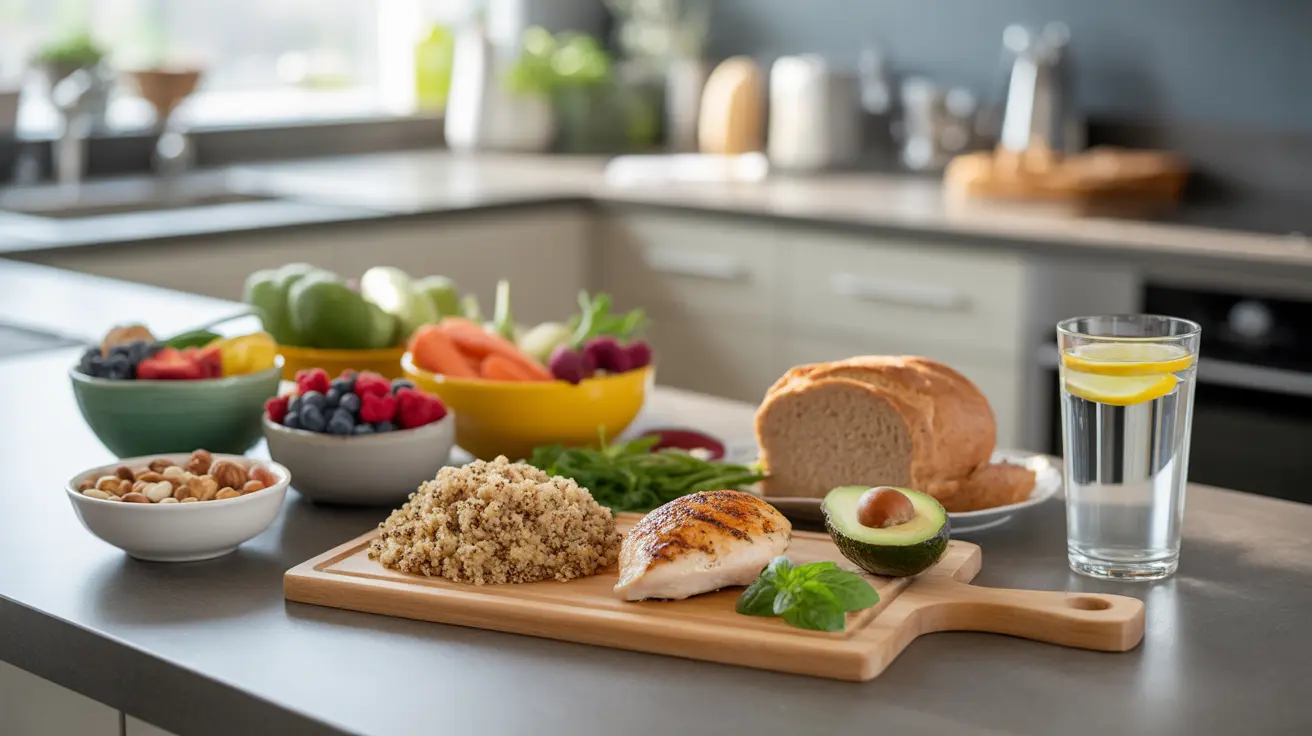Proper nutrition during breastfeeding is crucial for both mother and baby. A well-balanced breastfeeding diet ensures adequate milk production, supports maternal health, and provides essential nutrients for your growing infant. Understanding what to eat, what to avoid, and how to maintain optimal nutrition can help make your breastfeeding journey more successful.
This comprehensive guide will explore the key aspects of a healthy breastfeeding diet, including caloric needs, essential nutrients, and dietary considerations that can impact both you and your baby.
Nutritional Requirements for Breastfeeding Mothers
Breastfeeding requires additional energy and nutrients to support milk production and maintain maternal health. A balanced diet should include a variety of foods from all major food groups to ensure adequate nutrition.
Essential Food Groups for Milk Production
Focus on incorporating these nutrient-rich foods into your daily diet:
- Lean proteins (fish, poultry, lean meats, eggs, legumes)
- Whole grains (brown rice, quinoa, whole wheat bread)
- Fresh fruits and vegetables
- Healthy fats (avocados, nuts, olive oil)
- Dairy products or calcium-rich alternatives
- Water and hydrating beverages
Caloric Needs During Breastfeeding
Breastfeeding mothers typically require an additional 330-400 calories per day during the first year postpartum. Focus on getting these extra calories from nutrient-dense foods rather than empty-calorie sources.
Healthy Sources of Additional Calories
Consider these nutritious options to meet increased caloric needs:
- Greek yogurt with fresh fruit and honey
- Trail mix with nuts and dried fruits
- Whole grain toast with avocado
- Hummus with vegetables
- Smoothies made with milk, fruit, and leafy greens
Foods and Beverages to Limit or Avoid
While breastfeeding, certain dietary restrictions can help protect your baby's health and ensure optimal milk production:
Items to Monitor or Restrict
- Caffeine (limit to 300mg daily)
- Alcohol (avoid or time carefully around feedings)
- High-mercury fish
- Excessive processed foods
- Herbs not approved for nursing mothers
Supplements and Vitamins
Many healthcare providers recommend continuing prenatal vitamins while breastfeeding. Key nutrients to focus on include:
- Vitamin D
- Iron
- Calcium
- DHA
- Vitamin B12
- Folate
Impact on Breast Milk Flavor and Baby's Food Preferences
The foods you eat can influence the taste of your breast milk, potentially affecting your baby's future food preferences. Eating a varied diet exposes your baby to different flavors, which may help them accept a wider range of foods when starting solids.
Frequently Asked Questions
What foods should I eat to support milk production and my health while breastfeeding?
Focus on consuming a variety of nutrient-rich foods including lean proteins, whole grains, fruits, vegetables, and healthy fats. Include galactagogues like oats, fenugreek, and dark leafy greens that may help support milk production.
How many extra calories do I need daily when breastfeeding and what are good calorie sources?
Breastfeeding mothers need approximately 330-400 extra calories daily. Get these calories from nutritious sources like nuts, yogurt, whole grains, and lean proteins rather than processed foods.
Are there any foods or drinks I should avoid or limit while breastfeeding to keep my baby safe?
Limit caffeine to 300mg daily, avoid high-mercury fish, and be cautious with alcohol consumption. Some babies may be sensitive to certain foods in mother's diet, so monitor your baby's reactions to your food choices.
Do breastfeeding mothers need to take vitamin or mineral supplements, and which ones are important?
Most healthcare providers recommend continuing prenatal vitamins while breastfeeding. Key supplements include vitamin D, iron, calcium, and DHA. Consult your healthcare provider for personalized recommendations.
How does my diet affect the flavor of breast milk and my baby's acceptance of solid foods later?
The flavors from your diet can transfer to breast milk, potentially influencing your baby's food preferences later. Eating a varied, healthy diet may help your baby accept a wider range of foods when starting solids.




